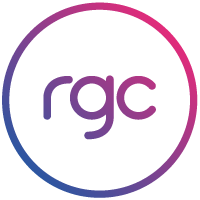Podcasts offer numerous marketing benefits, making them a valuable tool for businesses looking to engage with audiences in a more personal and long-lasting way. Here are some of the key marketing advantages:
1. Targeted Audience Engagement
Podcasts allow marketers to reach a highly engaged and specific audience. Since people choose to listen based on their interests, podcasts offer an opportunity to target niche markets more effectively than many other media formats. This focused engagement helps brands connect with listeners who are genuinely interested in the content, leading to better audience retention and loyalty.
2. Brand Authority and Thought Leadership
Hosting or sponsoring a podcast can help establish your brand as a thought leader in your industry. By consistently sharing valuable insights, stories, and expert interviews, businesses can position themselves as authorities. This not only builds trust but also enhances the credibility of the brand, which can lead to increased customer loyalty and conversion.
3. Increased Reach and Accessibility
Podcasts are accessible on multiple platforms like Spotify, Apple Podcasts, Google Podcasts, and more. This broad distribution allows businesses to reach listeners across different devices, markets, and time zones, expanding their audience. Furthermore, the flexibility of podcasts lets users listen on their own schedule—during commutes, workouts, or leisure time—which enhances consumption rates.
4. Enhanced Storytelling and Brand Personality
Podcasts offer an ideal platform for storytelling, allowing brands to present more nuanced and emotionally engaging narratives. The conversational format makes it easier to share complex ideas in a relatable and engaging manner. This helps humanize the brand, fostering deeper emotional connections with listeners. Through consistent tone and voice, podcasts can also convey the brand’s personality in ways that are difficult to achieve with traditional written content.
5. Low-Cost Content Creation
Compared to other forms of media, podcast production is relatively cost-effective. Once the equipment is in place, the ongoing production costs are minimal. For businesses, this makes it a highly scalable content marketing strategy. Podcasts can be repurposed as blog posts, video snippets, and social media content, allowing for multiple uses across channels without significant additional investment.
6. Longer Engagement Time
Podcasts typically engage listeners for longer periods compared to blog posts or social media updates. A podcast episode can last anywhere from 20 minutes to over an hour, giving brands extended time to engage their audience and convey more detailed information. This longer engagement time leads to stronger brand recall and more meaningful connections.
7. SEO Benefits
Though not directly indexed by search engines, podcasts can boost SEO when accompanied by well-optimized show notes, transcriptions, and blog posts. These written components can help your podcast episodes rank for specific keywords, driving organic traffic to your website. Additionally, podcasts are often shared on social media and embedded on other platforms, generating backlinks that further improve your SEO.
8. Collaborations and Partnerships
Podcasts offer a platform for collaborating with industry experts, influencers, and other brands. These partnerships can help expand your reach by exposing your content to new audiences. Cross-promotion through guest interviews and podcast sponsorships can further boost brand awareness and credibility.
9. Improved Customer Relationships
Podcasts help brands foster a sense of community by engaging listeners with valuable, consistent content. The personal and conversational nature of podcasts can strengthen the relationship between the brand and its audience, leading to higher customer loyalty and advocacy. Regularly listening to a podcast can make customers feel more connected to the brand, building long-term relationships that go beyond transactional interactions.
10. Monetisation Potential
Once your podcast gains traction, it can become a revenue stream in its own right through sponsorships, affiliate marketing, and product promotions. Sponsors are willing to invest in podcasts that have a loyal and engaged audience, offering an additional income channel while simultaneously promoting the sponsor’s products or services.
Conclusion
Podcasts offer a unique and powerful marketing tool that enhances brand authority, audience engagement, and storytelling. They provide targeted access to niche markets, foster long-term customer relationships, and are cost-effective to produce. As the popularity of podcasts continues to rise, they present an excellent opportunity for businesses to expand their digital marketing strategy and reach new audiences.





